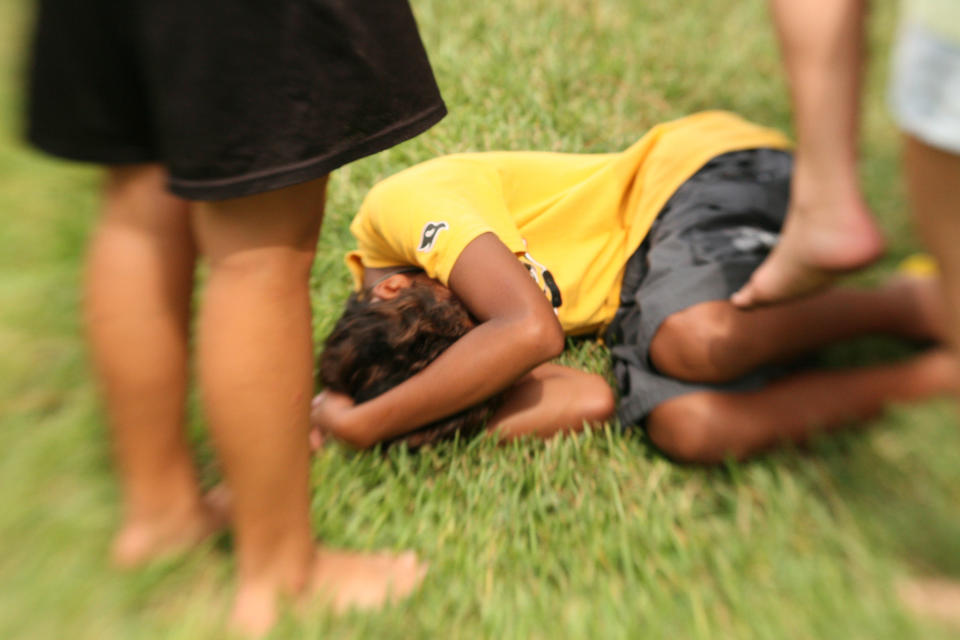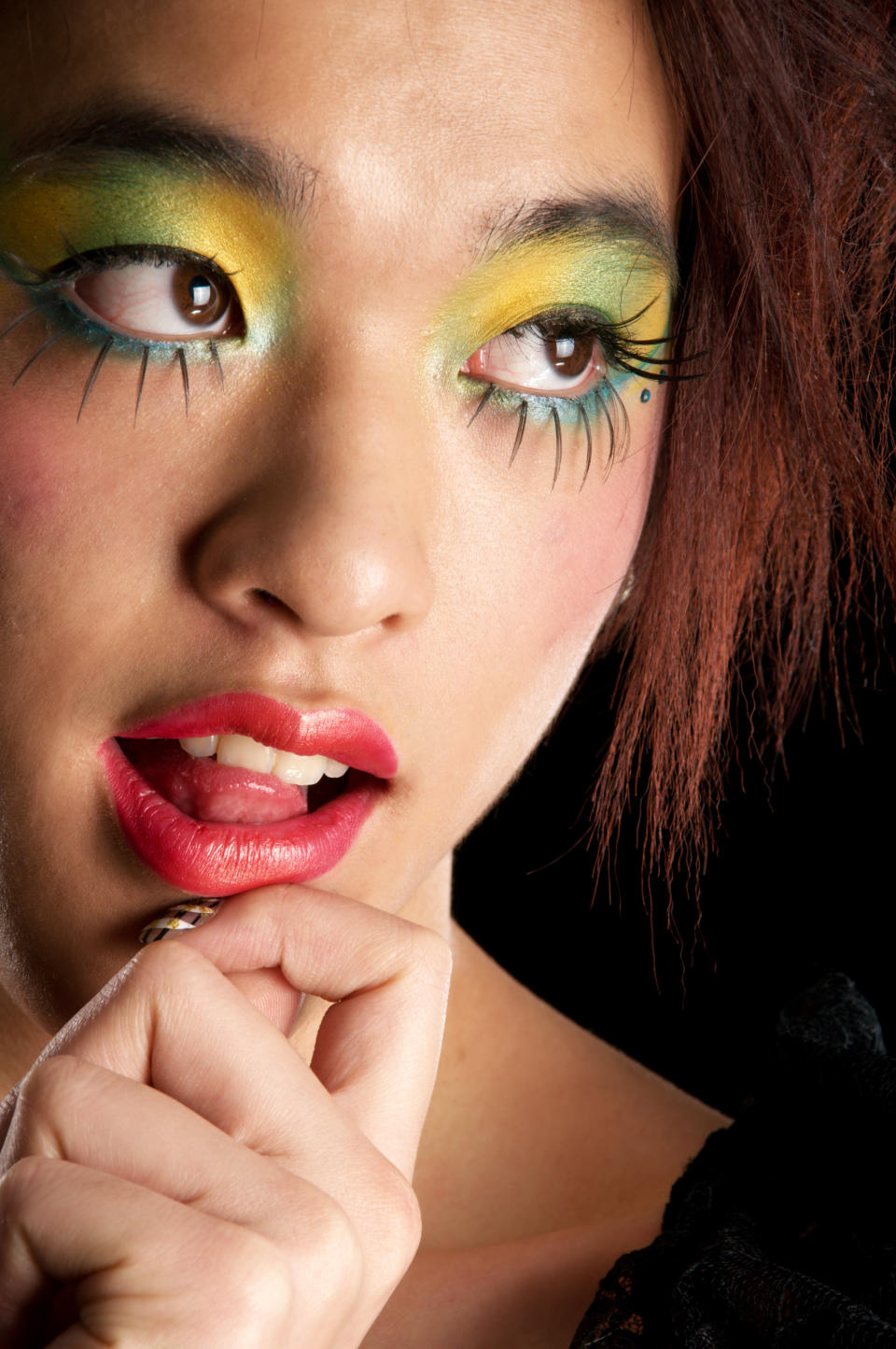News Anchor Expertly Claps Back At Viewer Who Called Her N****r
News anchor Sharon Reed responds on air to a viewer who calls her the N-word. This Atlanta Mayoral race has people fiesty tonight. pic.twitter.com/Vgri3oXnGN
— Billy Michael Honor (@BillyMHonor) December 6, 2017
An Atlanta news anchor doesn’t have time for racism.
Conversations surrounding the city’s mayoral race between Democrat Keisha Bottoms and Independent Mary Norwood have been drenched in racial tension. Bottoms, who was announced as the winner Tuesday evening with less than one percentage point of a lead, is black, and Norwood is white.
During a news segment on Tuesday night before the race was called, WGCL-TV journalist Sharon Reed addressed a viewer, Kathy Rae, who sent an email criticizing the anchor’s comments on how race played a role in the election. In the email, Rae called Reed a “N***r,” misspelling the slur. (Readers should be aware that the word also appears uncensored below.)
Reed addressed the email on-air, saying that Rae “mischaracterized” what she said.
“I didn’t say white people couldn’t talk about race. Quite the contrary, we think that race is an authentic discussion to have. It’s one that we’re having tonight because it’s one that you are talking about at home and it’s one that has clearly entered the Atlanta mayor’s race,” she said. “And that’s why, behind the scenes, my colleagues and I, white and black, we decided, hey, let’s go for it. Because we do try to keep it real here and I think we do a very good job of it.”
“So I think when arguing with somebody, you have to be careful not to mischaracterize their viewpoint, so I won’t mischaracterize your view either, Kathy Rae,” she continued. “I get it. On Dec. 5, 2017, you think it’s OK to call this journalist a nigger. I don’t. But I could clap back and say a few things to you. But instead, I’ll let your words, Kathy Rae, speak for themselves. And that’ll be the last word.”
Reed shared the clip on her Facebook page, noting that this isn’t the first time she’s been called the epithet.
The video, shared by Twitter user Billy Michael Honor on Tuesday, received more than 16,000 retweets and 31,000 likes.
Folks including rapper Killer Mike and comedian W. Kamau Bell praised Reed for getting the racist viewer all the way together in such a poised manner.
Please watch: This is a Teaching moment. Kathy Rae earned an education. #TheNWord #Nigger https://t.co/Qf33XGNobO
— Killer Mike (@KillerMike) December 6, 2017
Is it too late to nominate @SharonReedCBS46 as @TIME's #PersonOfTheYear? 👇🏿 #Savage https://t.co/vfyi68AV8n
— W. Kamau Bell (@wkamaubell) December 6, 2017
Felt this clapback in my joints. The 👏🏾 hands? WHEW. She could’ve made that woman cry if she really wanted to. https://t.co/qdwUOUU1LO
— Liz. (@LizMAdetiba) December 6, 2017
This is the look of Class and Confidence.. Perfection
— will j (@EarlKnights) December 6, 2017
I didn't know @SharonReedCBS46 until approx. three minutes ago, and I'm now a fan. https://t.co/ERpOLreTQJ
— Charlotte Clymer🏳️🌈 (@cmclymer) December 6, 2017
Whew shit. Yes, thank you sis. Wow. https://t.co/UZC6NIjAlc
— King K (@audaciouskay) December 6, 2017
😂😂😂
Sharon Reed dragged Kathy Rae all the way back to hell where she belongs.
🔥🔥🔥🔥🔥 https://t.co/ozS8yV0JUs— Holly O'Reilly (@AynRandPaulRyan) December 6, 2017
Let us build a statue for Kathy Rae so we always remember. https://t.co/gqYQ5Oj6OL
— jay smooth (@jsmooth995) December 6, 2017
. @SharonReedCBS46 we salute you! pic.twitter.com/uMQaLtPuyG
— Don Champion (@DonChampionTV) December 6, 2017
Watch the full video above.
Also on HuffPost
Love HuffPost? Become a founding member of HuffPost Plus today.
Bullying

Cyberbullying

Stock Answer To 'What Are You?'

Real Answer To 'What Are You?'

A Friend To Confide In

If You Can't Speak, Write

Let Your Identity Be An Open Question

Embrace The Chameleon

Don't Be Afraid To Abandon The Labels Altogether

Get Involved In Life

Be Proud Of Who You Are

Have A Ready Defense Against The Identity Police

This article originally appeared on HuffPost.

